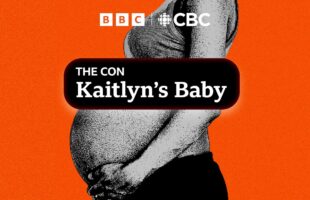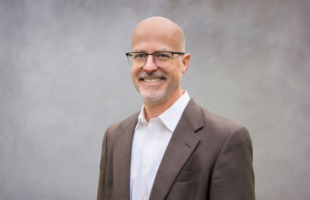By Kelvin Ong and Adrian Lim
15 March 2012, Singapore – It was late afternoon when we arrived at the lobby of The Naumi, a boutique hotel situated in the historic Seah Street in downtown Singapore. Richard Porter was already there, engrossed in a phone conversation with his children back home in England, as he tells us.
Over coffee, we asked the Controller of English at BBC Global News about BBC’s new Asia-focused business programme: Power of Asia.
Audio Interview Part 1 (9:04)
Richard Porter introduces the BBC World News and some of the online initiatives recently launched. He describes the reputation of the BBC as a reliable and value-driven organisation and also lists his criteria for the search for a Chief Business Correspondent.
“Power of Asia was a short burst of activity in the summer of 2011, really as a way of introducing some of the new initiatives that we were bringing about. We wanted to make a statement to the audience that we recognise the importance of a story here and we recognise how it is developing as rapidly as it is. And so we did a series of reports sort of examining some of the big shifts that were taking place and gave it the name the Power of Asia.”
Certainly, Asia Pacific is a booming market, not only for businesses, but for news as well. According to BBC’s 2011 data, the region formed more than a quarter of its global weekly audience of 225 million people, in which some 61.4 million from the region accessed the English broadcaster’s content on all platforms – online, TV, radio and wireless handheld devices.
Consequently, as part of a major drive to expand the breadth and depth of BBC’s international business coverage, the network launched an international search for a new Chief Business Correspondent to be based in East Asia in March this year. It follows the BBC’s promise last year in its ‘Delivering Quality First’ report, to pump in more and new investment dollars into newsgathering in new global priority areas including emerging markets such as Asia.
Besides Power of Asia, BBC World News also launched another business programme with an Asian perspective. In 2011, Newsday, a daily morning news programme looking at the latest stories from both an Asian and global perspective, was recorded out of the Singapore and London studios.
Audio Interview Part 2 (1:00)
Richard Porter highlights the funding structure for the BBC World News and its impact on operations.
Porter reveals that the feedback from audiences has been a largely positive one. “If you look at audience performance since last summer when all of this was at its peak, we’ve certainly improved our web audiences. We’ve had one set of figures from PAX for the TV numbers and they’ve been pretty good and we’re looking to improve upon them as time goes on.”
Despite the strong viewer response, Porter is quick to add that quality is as important as quantity when evaluating the effectiveness of a programme; a value he iterates several times throughout the interview. “We don’t just measure audience size, we measure the way in which the audience values the quality of what we do. And that’s as important to us.”
Editorial integrity is the one value Porter holds in highest regard. Last November, he wrote an entry on the BBC’s official blog The Editors, where he disclosed that the BBC Trust had found fifteen programmes broadcast during the weekend schedule that “breached the BBC’s editorial or sponsorship guidelines”.
Audio Interview Part 3 (3:40)
Richard Porter explains why it was important for the BBC World News to come clean when it was found to be in breach of BBC’s guidelines on editorial sponsorship.
He explains why he felt it was important to discuss the issue. “In the end, what it came down to was we did not give audiences all the information we should have, about how those programmes had come about and we felt that where we had made a mistake of that kind – that was something we should share with the audience, and I genuinely believe that one of the ways in which you build trust is by being open and transparent, and you can’t be open and transparent only about the things that are going really well.”
In this digital age of wireless technologies and mass-data services, Porter asserts that anyone can be and is a journalist. However, what differentiates a reputable and respected news agency like the BBC from blogs and social media outlets is editorial accuracy. The BBC admittedly, also utilises the benefits of Twitter and other similar social media tools. However, the organization expects the usual policies on accuracy to be upheld.
Audio Interview Part 4 (5:27)
Richard Porter explains the policies governing BBC journalists’ use of Twitter and general concerns when reporting the news via social media.
Audio Interview Part 5 (2:15)
Richard Porter gives his perspective on how technology has changed the process of news gathering.
“Essentially, anything that has the BBC’s name attached to it is officially the word of the BBC. So we wouldn’t publish anything on Twitter that we wouldn’t allow to be published on air or on our website. It goes through the same checks and balances,” says Porter.
We asked him about the catch-22 situation between timeliness and accuracy. He answers with little hesitation, “Most of the time, you can be timely and accurate. But if we get to a situation where it’s a choice between first and wrong, or second and accurate, that’s not a hard choice to make. That’s our policy. So if it takes us a few seconds or a few minutes to be sure about something, well, we’re going to be sure about it.”
Audio Interview Part 6 (4:02)
Richard Porter talks about BBC World News’ role in covering the London Olympics and how sports coverage will differ from what it was four years ago.








